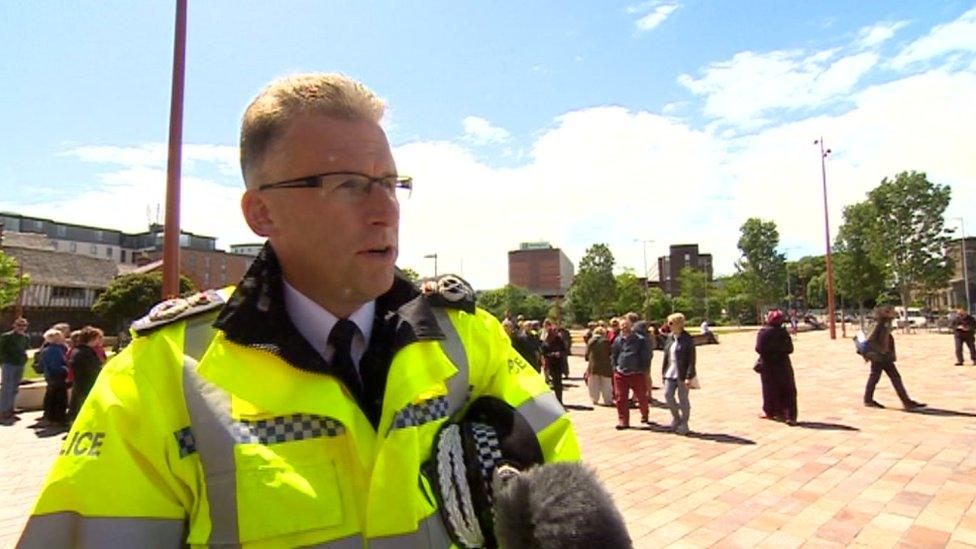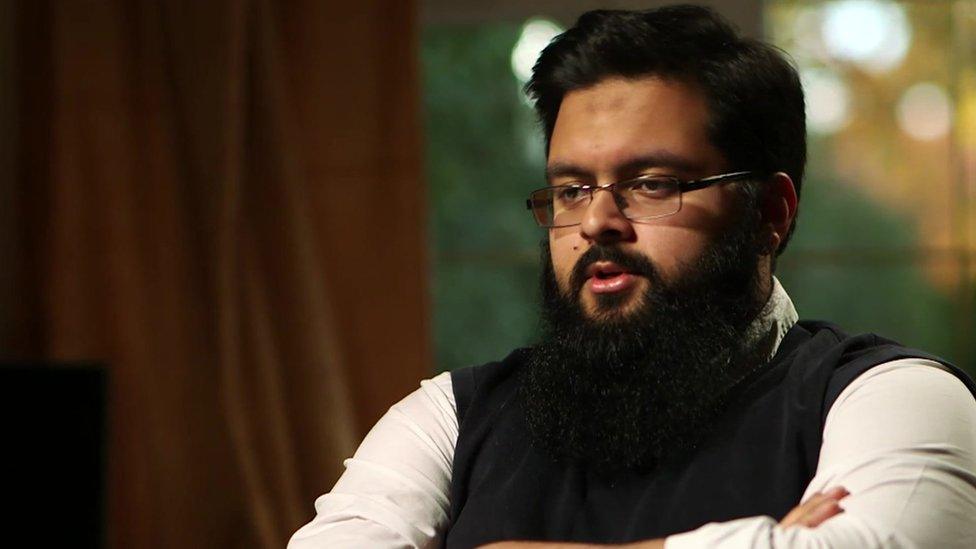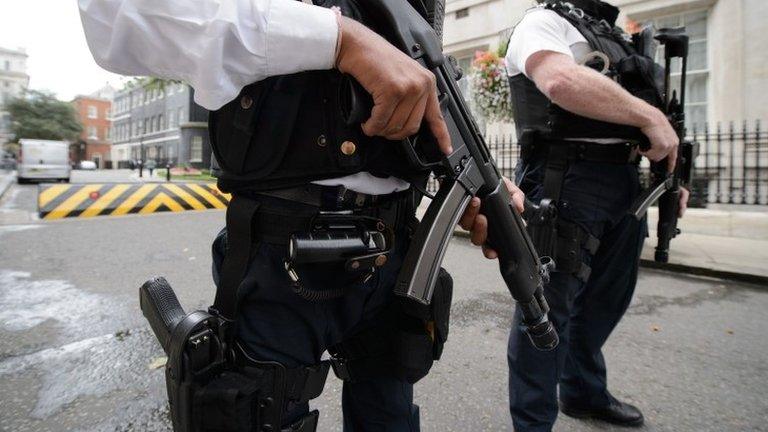Prevent scheme 'fundamental' to fighting terrorism
- Published

Chief Constable Simon Cole said criticism of Prevent was unfair
A senior police officer has called the government's Prevent anti-extremism programme "absolutely fundamental" in tackling terrorism in the UK.
The programme has been criticised by MPs, the National Union of Teachers and the Muslim Council of Britain.
But Leicestershire Chief Constable Simon Cole said it was sometimes wrongly presented in "hysterical" terms as a spying operation.
A Muslim group and a government advisor are calling for an independent review.
The Prevent duty was introduced last year, requiring schools and local authorities to "have due regard to the need to prevent people from being drawn into terrorism".
About 7,500 referrals were made to the scheme in 2015-16 - the equivalent of 20 a day, showed figures obtained from the National Police Chiefs' Council (NPCC) under a Freedom of Information request.
Of the people referred to the scheme, set up in 2005 in the wake of the 7/7 London bombings, one in 10 were deemed to be vulnerable to terrorism and were referred to Prevent's Channel programme, external.
'Cycle of aggravation'
Mr Cole, who is the NPCC lead for Prevent, said the scheme was about "putting an arm around" people at risk of radicalisation.
"We try and divert, allow people the opportunity to help them make better decisions. It's absolutely fundamental," he said.
"It has enabled us to try and help stabilise communities and stop people getting us into a cycle of aggravation."
He cited a case in which people referred a young man from the Midlands who had been considering travelling to fight in Syria.
Prevent groups worked with the man and he decided not to go, Mr Cole told BBC Radio's 5 live.
"The people he was travelling to meet, we believe, are dead. This is very real stuff," he said.
In an interview with the Press Association, he cited another case of a young man from the north of England who was identified as expressing right-wing views.
He was referred to Prevent and a programme was put in place were he met people from other races and backgrounds through football.
This changed some of his thinking about those groups and probably made him "a better citizen", Mr Cole said.

Of cases where an ideology was recorded, nearly one in 10 were linked to far-right extremism.
Asked about the nine out of 10 found not to be at risk of extremism, Mr Cole told the BBC they were often found to be vulnerable in other ways.
He said the process was "calm, mature and thoughtful", adding: "I think we'd all agree it was a good thing at a time when the terror threat level is at severe."
But Raheel Mohammed, director of Maslaha, a charity that aims to tackle inequalities facing Muslims, said too many of the referrals were unsubstantiated.
He said the public was not hearing about the impact of a wrong referral on those individuals, their families and the wider community.
The government's independent reviewer of terrorism legislation, David Anderson, said troubled people had "undoubtedly" been helped by the strategy but it had suffered from bad PR.
He called for more openness from the government, better engagement with communities and an independent review of Prevent.
"I could see the logic in having an honest broker, trusted by Parliament, prepared to go to the media and explain what they were seeing, who could demystify what - at the moment - is seen as a secret and for that reason by some people, rather threatening strategy," he told BBC's World At One.
Miqaad Versi, of the Muslim Council of Britain, said an independent review should take place, "at the very minimum".
He cited a case in which a Koran in a young boy's bedroom was considered a sign of radicalisation, and asked why Muslim communities appeared to be being targeted.
Liberal Democrat home affairs spokesman and former Metropolitan Police commander, Lord Brian Paddick, said Prevent needed to be scrapped and replaced with a new community-led programme.
"The Muslim community rightly feels unfairly targeted by this policy and yet community confidence is crucial to its success," he said.
Journeys to Syria
Of the 7,500 referrals made to the Prevent scheme in 2015-16, a quarter were found to be vulnerable but not at risk of involvement in terrorism.
No action was taken with 37% of the referrals and 28% were still being considered.
Of cases where an ideology was recorded, just over half related to Islamist extremism and nearly one in 10 were linked to far-right extremism.
The scheme claims to have played a major role in stopping more than 150 attempted journeys to the conflicts in Iraq and Syria.
A recent internal Home Office review of Prevent recommended it should be strengthened.
- Published6 December 2016

- Published13 August 2016

- Published6 March 2015
